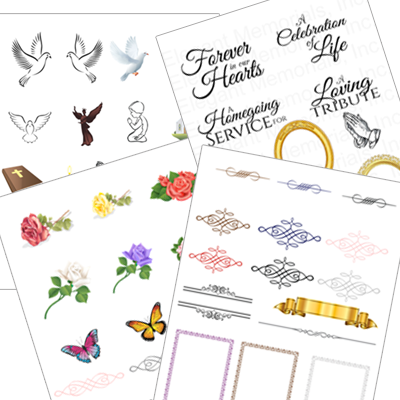Funeral Etiquette
When a friend, acquaintance or relative has passed away, you may decide to attend the funeral. If you haven't attended a funeral before, having some guidelines for funeral etiquette can be helpful. Below you will find etiquette generally observed at American funeral services, to help you prepare for the service.
Funeral Etiquette Before the Service
Once you've heard of the death of someone you know, there are several things you can do to express your concern. Sympathy cards to the family, a brief phone call, a planned visit to the home, and preparing meals for the family are all common ways to offer condolences.
The guiding principle should be: What is actually helpful to the family? Well-meaning friends and co-workers sometimes overwhelm the grieving family with unannounced visits, long phone calls and food they have no place to store. It's better to contact the family and ask how best to help.
Another way to offer your condolences is with funeral flowers, floral tributes or memorial donations to charities. Again, pay attention to the family's stated preferences rather than following your own.
One more note on pre-funeral etiquette: many times a visitation with the family at the funeral home is planned. Should you decide to attend, remember that you're here to support the family and keep your visit brief and respectful. Hugs, prayers and offers of condolences go a long way to lessening the grief of the moment. View the remains, if you choose, after you've connected with the family.
Funeral Etiquette During the Service
Although rigid, solemn funeral services may no longer be the norm in the US, a funeral is still an emotional occasion with its own special etiquette. Here are some general guidelines:
-
Clothing: Black is no longer required at a funeral, but flashy or provocative clothing is always inappropriate. Sometimes families plan an informal service at graveside where casual clothing could be worn, but in general, it's better to stay away from jeans, shorts or T-shirts when dressing for a funeral. The guideline? Err on the side of business dress rather than everyday casual.
-
Children at Funerals: Even in the case of a close loved one, weigh bringing small children against the disruption they may cause during the service. In a situation as emotionally-laden as a funeral, a crying toddler drowning out the eulogy may be more than mourners can bear. If you have no daycare options, find out if a cry room is available.
-
Funeral Behavior: Every funeral is a different occasion some are joyous celebrations of a person's life, others are solemn, formal observances. There are some norms that you'll see at most American funerals, though.
It's typical for the family to seated as the funeral begins, in an area reserved for them. If no ushers are present, choose a seat away from the front few rows to leave room for them.
Many funeral services include music, poetry or religious observances meaningful to the one who has died. Try to align yourself with the spirit of the moment, rather than talking or otherwise disrupting others. Cellphones, pagers and other electronics should be turned off throughout the service.
Even without a funeral program or a printed funeral order of service, watch what the family does to know what will happen next. They are usually the first to leave the service as the pallbearers escort the funeral casket, if present, to the funeral coach. Simply remain seated until the family is gone, or watch for ushers to signal when it's time to go.
Funeral Etiquette After the Service
An interesting thing often happens at the end of a funeral service; people who have been grieving for several days uninterrupted may experience a sense of relief and begin to relax and smile a little. That isn't, however, a signal for others to begin talking loudly.
As the mourners begin to move to the gravesite, maintain a respectful tone. You may find yourself the subject of some serious frowns if your children are running wildly over graves or your inappropriate joking drowns out the final tribute.
The burial ceremony is normally brief, followed sometimes by a funeral dinner. Unless the person leading the service, or a member of the family, has signaled that people outside the family should attend the dinner, it's time to say your goodbyes to the family and leave.
Funeral etiquette varies from region to region in the US. Local customs may be far different than what you're used to, so try to keep in mind that you're there to support the family of the one who has died. Being guided by kindness and respect will always lead you to the right funeral behavior.



